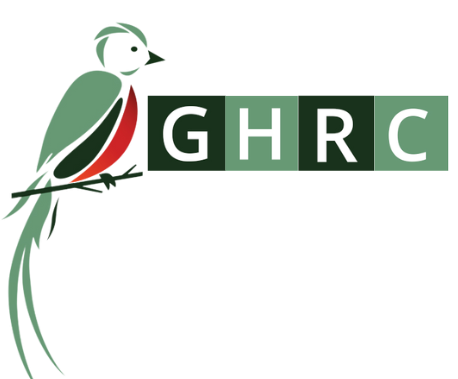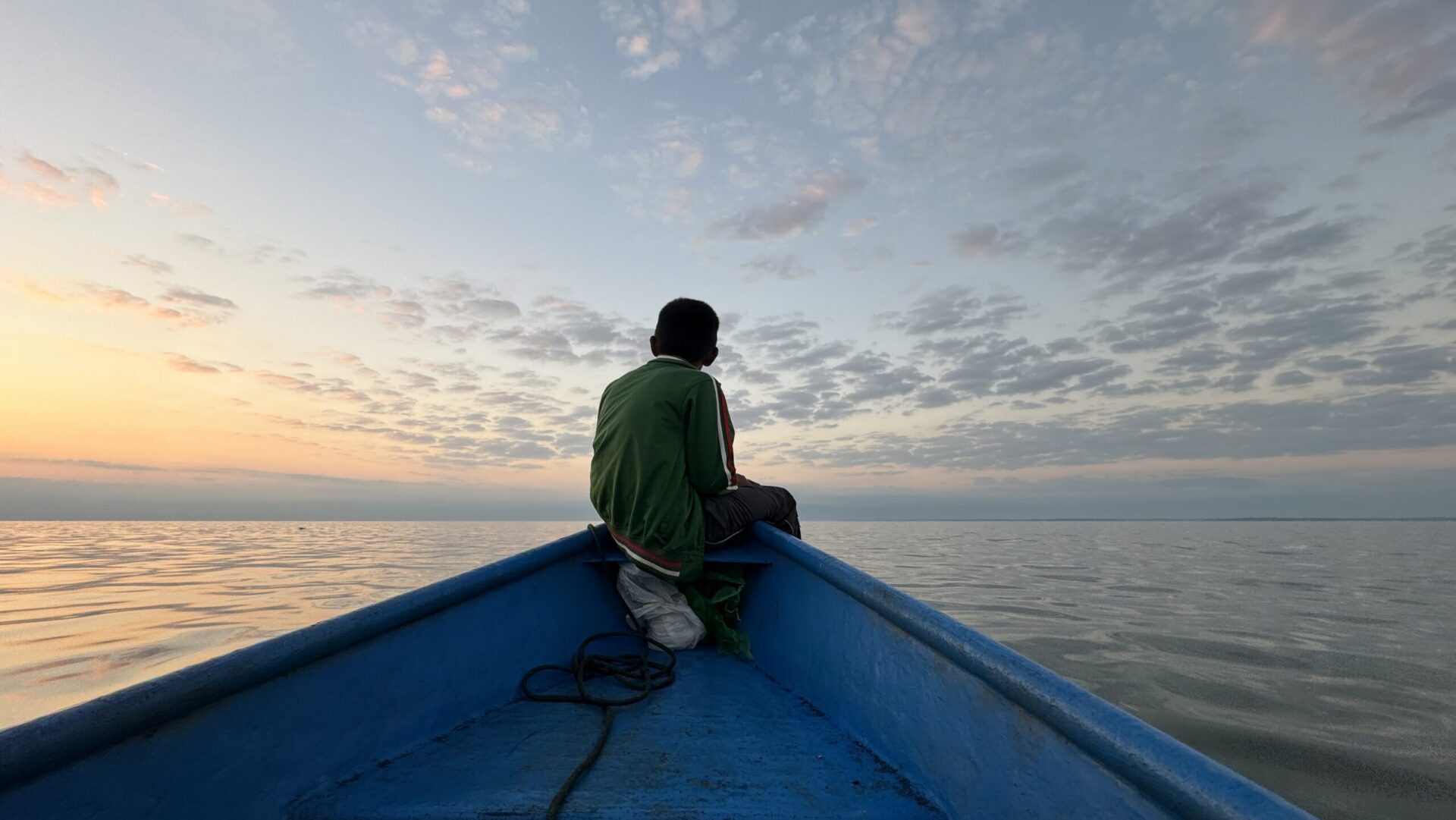Mid-year statistics reveal that the human rights situation continues to worsen under the Giammattei administration. On August 23, the Unit for the Protection of Human Rights Defenders (UDEFEGUA) presented its analysis on the situation for human rights defenders in the first half of 2022. Between January and June, UDEFEGUA recorded 589 aggressions against individuals, organizations, and communities that defend human rights. UDEFEGUA also demonstrated that under the first 2.5 years of President Alejandro Giammattei’s administration, more attacks on defenders have been carried out than during the four-year terms of any previous peacetime president. Attacks on human rights defenders have more than doubled since 2019, when the UN-backed International Commission Against Impunity in Guatemala (known by its Spanish acronym CICIG) was forced out of the country.
In particular, the situation for women has worsened significantly. UDEFEGUA Program Associate Brenda Guillen presented the situation for women human rights defenders, outlining several alarming trends. Of the aggressions registered so far this year, 45 percent have been against women. According to the report, women working within the judicial sector were most attacked, followed by women seeking justice. Female human rights accompaniers were the third most attacked category. She pointed out that the most frequent attacks against women involve the criminalization of women, including defamation, baseless charges, and arbitrary arrest. In a joint report published in June, UDEFEGUA explained that these types of aggressions are “motivated by serious manifestations of misogyny and violence against women.”
General Coordinator Jorge Santos attributed the rise in attacks to “authoritarian consolidation,” which he identified by six indicators: the capture of institutions; alignment of the three state powers; dismantling of public institutions; increased violence and repression; militarization of civil life; and a rise of conservatism in society. He explained that, “The situation of institutional capture that we are seeing in Guatemala is very serious because it is aimed at guaranteeing impunity and silencing us as civil society.”
Prominent Journalist, Prosecutor, and Newspaper Employee Arrested
On the night of July 29, police raided the home of internationally renowned journalist José Rubén Zamora and arrested him. Zamora is founder and president of the newspaper El Periodico. Known for its investigative journalism, particularly into corruption in high spheres of government, El Periodico has become a target by pro impunity forces within Guatemala. The newspaper’s offices were also raided that night.
Special Prosecutor Samari Carolina Gómez Díaz was arrested on the same day and charged with leaking confidential information, in connection with the charges against Zamora. Gómez told reporters that since former head prosecutor Juan Francisco Sandoval was arbitrarily dismissed by the country’s attorney general last year, she has suffered increasing harassment. She has worked in the Public Ministry with a spotless record for 12 years.
On August 8, at the initial hearing of Zamora and Gómez, which had been postponed by more than a week, Judge Fredy Raúl Orellana Letona remanded the two to prison to await trial in detention. Zamora is accused of money laundering, blackmail, and influence peddling, charges which he denies. He attributes his arrest to the widening crackdown on freedoms in Guatemala, including freedom of expression.
Zamora’s arrest has been met with national and international outcry. According to Natalie Southwick, Latin America and Caribbean Program Coordinator of the Committee to Protect Journalists, “The continued detention of José Rubén Zamora is completely unwarranted and shows that Guatemalan prosecutors are scrambling to find any excuse to justify their actions against a journalist who is critical of the government.” United Nations Secretary General Antonio Guterres expressed concern about Zamora’s arrest and the legal actions carried out against justice officials in Guatemala. The International Observatory for Human Rights in Guatemala denounced his arrest and demanded his immediate release. Connecting the aggression to worrisome strategy employed by corrupt elites in Guatemala, the Observatory explained, “These attacks are part of a generalized pattern that has worsened, and that has as a common denominator the use of the criminal justice system to persecute critical voices and those who have contributed to unraveling the networks of corruption in the country.”
In spite of the international outcry surrounding Zamora’s arrest, Guatemala’s Public Ministry ordered the arrest of Flora Silva, the finance director of El Periodico on August 19. Police raided her home, leading her to suffer a hypertension crisis. She was hospitalized immediately. On August 23, she was transferred to Mariscal Zavala prison following her discharge from the hospital.
Ombudsman Transition Signifies Final Takeover of Institutions by Corrupt Forces
After completing his five-year term as Human Rights Ombudsman, which ended on August 20, Jordán Rodas was replaced by lawyer José Alejandro Córdova Herrera. Cordova was elected on July 20, garnering support in the Guatemalan congress from political allies of President Alejandro Giammattei. Human rights groups mourned the loss of what they identified as the “last independent institution” in Guatemala. In addition to his connections to what they call the “Pacto de Corruptos,”or corrupt elites, Cordova has been implicated in high-level cases of corruption but has not been investigated. “The challenge for the new ombudsman is his great closeness to figures in power and whose impunity continues,” explained General Coordinator of UDEFEGUA Jorge Santos. “We hope to see his independence from those figures.”
Rodas’ work gained him many admirers, as well as enemies. While human rights groups commended his work, in particular his tireless effort to prevent the expulsion of CICIG in 2019, that same effort made him a target for pro impunity groups like the Foundation Against Terrorism (FCT) and other powerful actors. Identified in the State Department’s 2021 Human Rights Report on Guatemala as the group that has filed the most cases against human rights defenders, the FCT has remained steadfast in its villanization of Rodas, claiming his work has fomented “polarization” in Guatemala. Video evidence from a hearing in March reveals a member of the FCT verbally threatening Rodas. In March, FCT president Ricardo Mendez Ruiz followed up on the threat, saying, “Remember that we personally promised you last March 15 to send you to jail as soon as you leave the position of PDH.”
Rodas entered El Salvador in the early morning hours of August 20, as migration authorities confirm. Rodas, however, has not made an official statement on his plans, other than to state that professional commitments and challenges would keep him out of the country for a while. If he does choose exile, he will join six Guatemalan journalists and 24 Guatemalan judges and prosecutors who have been forced to flee Guatemala.
Just Outside the Capital, Maya Poqomam Community Resists Harmful Mining
On July 27, Maya Poqomam community in Santa Cruz de Chinautla celebrated its first month of resistance against harmful gravel mining in its territories. Led by Indigenous Poqomom Authorities, the community established a peaceful resistance against the extraction of sand by the companies Arenera La Primavera and Piedrinera San Luis. According to community members, mining operations have continued in spite of the fact that the mining licenses of the companies have expired. As a result of this mining, significant damage has occurred to the surrounding houses, endangering the lives of the people who live in them, in addition to causing displacement.
Since its inception, the resistance has been subject to threats from the mining companies, personnel from the municipality, and National Civil Police (PCN). Community members report frequent visits from police officers, who routinely take photos of resistance members and taunt the group. On July 28–while the GHRC Emergency Human Rights Delegation was visiting the site–two police officers arrived, asking for more information about the meeting between GHRC and the resistance. When asked about his view on human rights, one of the officers responded, saying, “My job is to keep order, not human rights.”
The resistance is calling for the end to mining operations and the definitive cancellation of the licenses. In addition to maintaining a permanent encampment on the road to the mines, Indigenous Authorities have filed a claim to the Ministry of Energy and Mines (MEM) and are continuing to consider other legal avenues. “We are certain that several rights have been violated here, the damage can no longer be hidden, so we are confident that some entity can help us to cancel these licenses,” said the spokesman for the ancestral authorities of Chinautla, Efraín Martínez.
Police Attempt to Evict Communities in Purulhá for the Third Time
In the early hours of the morning, hundreds of agents of the National Civil Police moved into the communities of Pancoc, Los Encinos and Mojón in the municipality of Purulhá, Baja Verapaz, in an attempt to evict the inhabitants of the communities. Unknown armed actors also entered the community, resulting in one injury by firearm. Community members speculated that the armed actors were hired by large landowners of the San Rafael and San Luis farms who have claimed ownership over Maya Q’eqchi’ and Poqomchi’ territories in the area and have filed several requests for evictions of the communities this year. The eviction was suspended once more, but police forces reportedly stayed in the area.
This incident marks the third eviction attempt by police in Purulhá this year that has resulted in violence. The community received precautionary measures issued by the Inter-American Commission on Human Rights in 2017 after threats made to them by large landowners in the area.
Former Special Prosecutor Forced to Stay in Pretrial Detention
On August 12, following an evidentiary hearing, Judge Sergio Mena Samayoa ruled to send Virginia Laparra, the former head of the Special Prosecutor’s Office Against Impunity (FECI) in Quetzaltenango, to trial. Laparra–who was arrested in February as part of a string of arrests against anti-impunity attorneys–faces trumped-up charges, including “abuse of authority.” Her trial has been set for November 28 of this year.
Laparra’s legal team filed a request for measures which would allow her to await trial outside of prison. The request for these measures, however, was not heard at Laparra’s late August hearing, where the judges recused themselves because of an alleged friendship they had with the plaintiffs. Laparra will remain in the Matamoros prison, where she continues to be held in solitary confinement, with access to sunlight for just one hour a day. She has received support from groups nationally and internationally, including the US State Department. In a statement released in March, the US State Department denounced the intentional criminalization of justice sector workers in Guatemala, which has revealed a “disturbing trend of corruption and the weakening of democratic institutions and processes in Guatemala.”
GHRC Delegation Visits Guatemala to Document Growing Repression
From July 23-30, GHRC led a delegation of Guatemala scholars and human rights professionals and activists to investigate the alarming regression in respect for human rights and the rule of law in Guatemala. The Emergency Human Rights Delegation met with human rights defenders throughout the country, as well as journalists, witnesses in transitional justice cases, and US embassy and Guatemalan officials. Three-time delegation participant Andrea Doll told US embassy staff, “This is the worst I’ve seen Guatemala. It’s painful to see the immense suffering. Something needs to be done before it gets even worse.”
According to General Coordinator of UDEFEGUA Jorge Santos, “The [human rights] situation is unprecedented in this century.” Defenders shared their concerns with delegates, including the role of the US. “It’s not that we don’t appreciate the support from the US, but we’re worried its messaging is not matching its actions,” explained Hector Reyes of the Center for Human Rights Legal Action (CALDH). Former Human Rights Ombudsman Jordan Rodas told delegates, “Corrupt actors need to face stronger consequences. They need to feel the economic impact of their actions with sanctions against them.” The delegation will be releasing a formal report in September, revealing our findings and including recommendations for the US government and the international community.

